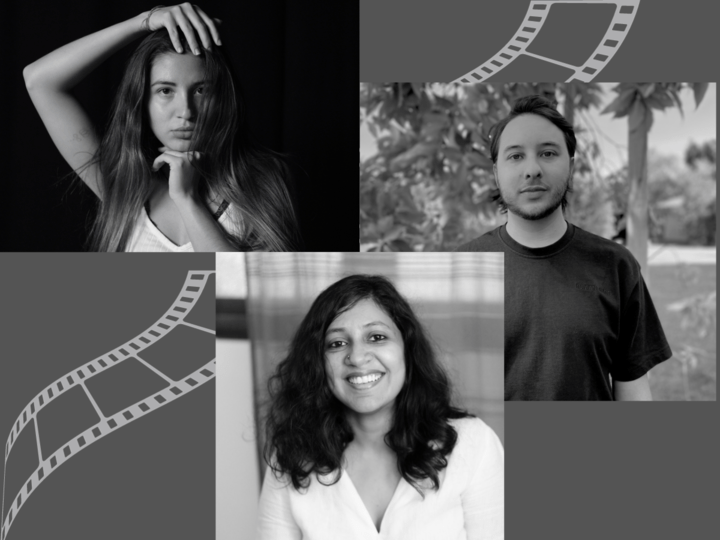Stanford’s MFA in Documentary Film and Video is a two-year program in which small cohorts of six to eight students immerse themselves in documentary filmmaking. According to the program’s director, Srdan Keča, the program is centered around the principle of collaboration. Students discuss footage, assist each other’s shoots and give feedback at every stage of the creative process.
“This enables each student to become a whole, independent filmmaker and educator while also integrating them into a community alongside other passionate filmmakers,” Keča said. “Beyond the achievements of our individual alumni, what really excites me is to see how much collaboration takes place among them.”
The Daily interviewed three graduates of the MFA Documentary Film and Video program about their creative projects and sources of inspiration. Eschewing the realm of commercial filmmaking, these artists forge their unique paths to craft works that are both innovative and pertinent to contemporary audiences.
All three emphasized that the Stanford MFA program was their first choice because it uniquely combines Documentary Film and Art studies, providing space for artists to experience and create.
Sruti Visweswaran ’23
Fascinated by how cinema interacts with reality, Visweswaran began her journey in 2008. Visweswaran said that unlike those who separate the stages of creation, her process is one of simultaneity — thinking, shooting and editing all intertwine, building upon each other like floors of a building. She follows her intuition to allow for a fluid and organic creative process.
Her passion lies in the editing stage, where she must assemble unscripted pieces into a coherent narrative. It’s the space she enjoys the most: choosing how to represent the myriad facets of reality, akin to solving a complex puzzle.
Visweswaran often finds herself drawn to the question of “how we live,” particularly in the context of her Indian heritage. Her work portrays the people, traditions and ways of life of the subcontinent to explore the culturally-held value of togetherness.
Visweswaran is also interested in examining the power dynamics in image-making, especially in the context of war. Drawing from structuralist materialism and the philosophies of Foucault, she delves into the historical interplay between image-making, technology and violence.
Within the MFA program, she collaborated with Rowan Ings ’23 on a project called “Continuum” (2023). This project was later featured among the contenders for the Best Mini Doc at the 2023 Big Sky Documentary Festival.
“Continuum” provides an insight into contemporary agricultural practices, exploring the relationship between humans and natural forces such as water, wind, soil and bees. For Visweswaran, the program “pushes you beyond your own thoughts and processes” much like fertile soil nurtures seeds and promotes their growth.
Her observant and community-oriented nature carries forward outside of her professional pursuits. Visweswaran described having a soft spot for stray animals and finding joy in making music and cooking food for social gatherings.
Enrique Pedráza Botero ’23
Born and raised in Bogotá, Colombia, Pedráza Botero’s early interest in art was nurtured in an environment where the film industry was not prominent.
This led him abroad to pursue a bachelor’s degree in Film and Television at the New York Film Academy (NYFA) in Los Angeles. There, Pedráza Botero took an elective in documentary filmmaking, a seemingly small decision that sparked a significant shift in his career.
One of Pedráza Botero’s works is the “Alpha Kings” (2023) documentary, distributed by The New Yorker. It began as an idea for a Master’s thesis during the Stanford MFA program: the project evolved through a collaborative effort with a fellow student Faye Tsakas ’23, who shared his interest in Internet culture.
The documentary explores the lives of the younger generation on social media, their perspectives and the unspoken questions they grapple with, such as the world of online financial domination, where paying clients consent to relinquishing control over their finances. The project reflects his commitment to unveiling the less-discussed, often hidden aspects of society, Pedráza Botero said.
Pedráza Botero cherishes the research and ideation stages of his projects. He spends considerable time — often years — ruminating on ideas, reading extensively and exploring social media platforms like TikTok and Twitter for inspiration. His approach includes reaching out to people he finds interesting, seeking collaboration and shared stories.
Botero’s MFA thesis, titled “No se ve desde acá,” is currently in post-production; he co-leads a new documentary initiative at Harvard’s Center for Media and Policy. According to Botero, the role allows him to pioneer research on documentary film infrastructure, focusing on distribution and ethical aspects, including the impact of artificial intelligence and chatbots.
Pamela Martinez Barrera ’25
Venezuelan-born Barrera’s work is deeply intertwined with her personal experiences, navigating the complexities of politics, emotions and artistic expression. It is often a cathartic process, where emotions stirred by political events are funneled into creative endeavors.
Barrera said her background in sociology, including ethnographic tools and theoretical concepts on gender and sexuality, enriches her documentary filmmaking. She draws inspiration from Judith Butler’s “Frames of War” to explore themes like the precarity and the precariousness of life.
This distinction is important for her art — Barrera emphasizes that while precariousness relates to our universal vulnerability towards death, precarity is an induced condition when the state fails to provide appropriate structures and conditions for success and fulfillment.
Along with these two central themes, Barrera’s work delves into subjects like abortion and migration. She’s fascinated by the intellectual stimulation these topics provide and is keen on presenting them in a way that resonates on a deeper level with her audience.
Barrera emphasizes ethical considerations in her documentaries. She believes in working with people, not merely making films about them. This involves showing them cuts before finalizing, recording with their consent and building trust — a process she acknowledges takes time. Barrera also noted the important balance between the filmmaker’s subjectivity and the separate identity of the film itself. Her belief that all documentaries have elements of fiction challenges conventional perceptions.
